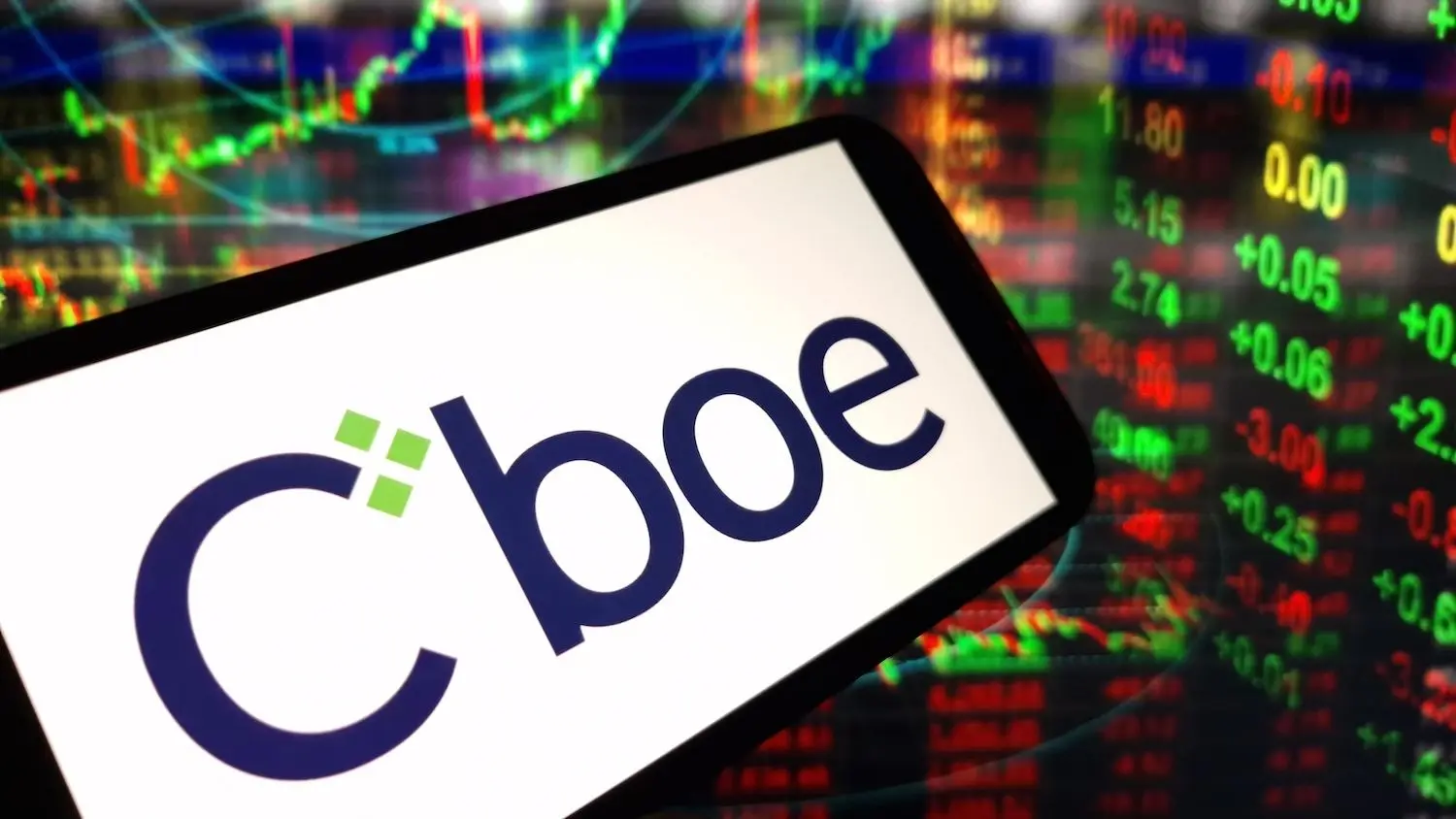Cboe Global Markets will launch the first U.S.-regulated perpetual-style cryptocurrency futures contracts on December 15, pending final regulatory approval. The Cboe Futures Exchange will offer Continuous Futures for Bitcoin and Ether, bringing a product structure previously available only on offshore platforms into the domestic regulatory framework.
What to Know:
- Cboe will debut 10-year expiration futures contracts for Bitcoin and Ether with daily cash adjustments, replicating perpetual swap mechanics under U.S. derivatives oversight.
- The products eliminate the need to roll expiring futures contracts, addressing operational friction that institutional investors face with standard monthly or quarterly expirations.
- Educational sessions will be held in December and January to familiarize traders with contract specifications, funding calculations and strategic applications.
Regulated Alternative to Offshore Markets
Perpetual futures have become one of the most heavily traded cryptocurrency derivatives globally, but they've flourished almost entirely outside U.S. jurisdiction. Regulatory constraints have kept domestic exchanges from offering these instruments, leaving American institutional investors to either accept the rollover burden of standard futures or venture into less-regulated offshore venues.
Cboe's Continuous Futures attempt to bridge that gap.
Each contract carries a 10-year expiration and employs daily cash adjustments similar to the funding payments used in perpetual swaps. The structure allows traders to maintain positions without monthly contract rollovers while staying within CFTC-regulated parameters.
"As perpetual futures have historically been traded offshore, Cboe is excited to help expand access to these products within a US-regulated, transparent, and intermediary-friendly environment," said Rob Hocking, Global Head of Derivatives at Cboe.
He noted the contracts enable more efficient portfolio management and provide a supervised pathway to leveraged digital asset exposure.
The Bitcoin contracts will trade under the ticker PBT, while Ether contracts will use PET. Both will be cash-settled and centrally cleared through Cboe Clear US, with margin requirements following standard derivatives oversight protocols. Traders may also gain cross-margining benefits with CFE's existing Financially Settled Bitcoin and Ether futures.
Technical Structure and Market Access
The contracts will track Cboe Kaiko Real-Time Rates for both Bitcoin and Ether. A daily "Funding Amount" will be applied to open positions, mirroring the funding mechanism that keeps perpetual swap prices aligned with spot markets. Trading hours will span 23 hours daily across five days, running from Sunday evening through Friday afternoon Eastern Time.
Anne-Claire Maurice, Managing Director of Derived Data at Kaiko, said the structure addresses institutional demand for long-term cryptocurrency exposure.
"Bringing perpetual-style futures to US regulated markets addresses a real need for institutional investors seeking efficient, long-term crypto exposure," Maurice said, emphasizing that the design removes rolling risks while maintaining transparency.
The exchange operator plans two public education sessions through its Options Institute. The first will take place on December 17, 2025, followed by another on January 13, 2026. These courses will cover contract specifications, funding calculations and strategic use cases ranging from hedging to synthetic long-term positioning.
Understanding Key Terms
Perpetual futures differ from standard futures contracts by having no expiration date, though Cboe's version uses a 10-year expiration to comply with U.S. regulations. Traditional futures require traders to close positions and reopen them in new contract months, a process called rolling that creates transaction costs and timing risks.
The funding mechanism serves as a periodic adjustment between long and short positions. When the futures price trades above the spot price, long position holders typically pay shorts; when futures trade below spot, shorts pay longs. This mechanism encourages price convergence without requiring contract settlement.
Cash settlement means contracts are settled in dollars rather than physical delivery of the underlying asset. Central clearing through a regulated clearinghouse reduces counterparty risk by guaranteeing contract performance.
Closing Thoughts
Cboe's Continuous Futures represent the first regulated perpetual-style cryptocurrency derivatives available to U.S. institutional investors. The December launch will test whether domestic traders embrace a product that has thrived offshore but now arrives with full regulatory oversight and investor protections.



